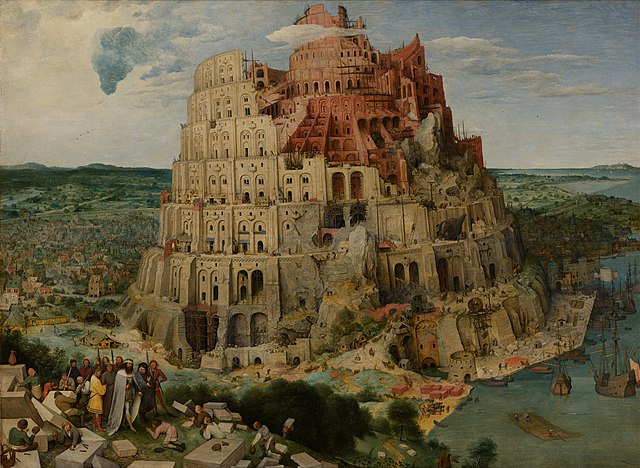The History of Languages
A language is a structured system of communication.
The type of communication that involves the use of words.
What is a Language?
Apes and Whales communicate with each other.
Birds and Bees communicate with each other.
But only humans have developed a real Language.
No other species can express ideas using sentences constructed by a set of words (with verbs and nouns).
This skill is remarkable. And what is even more remarkable: Even children master this skill.
Spoken Languages
We are not sure of how old the spoken language is. The topic is difficult to study because of the lack of evidence.
We don't know how it started. But we have a clue.
The great African apes, Pan and Gorilla, are our closest living relatives. Why are they called "Apes"? Because they ape. Apes mime to get their message across.
It is assumed that the evolution of languages must have been a long process. Our ancestors might have started speaking a million years ago, but with fewer words, more miming, and no grammar.
Cognitive Development
According to Hauser, Chomsky, and Fitch (2002), there are six aspects of language development:
- Theory of Mind
- Understanding Vocal Signals
- Understanding Imitation
- Understanding Numbers
- Understanding Intentional Communication
- Understanding Non-linguistic Representations
Human Languages
Human languages contain a limited set of Words put together in Sentences:
Example
I'm going on holiday in my new car.
Vado in vacanza con la mia macchina nuova.
Me voy de vacaciones en mi auto nuevo.
Ich fahre mit meinem neuen Auto in den Urlaub.
Computer Languages
Computers are programmed with a limited set of Words put together in computer Statements:
Example
var points = [40, 100, 1, 5, 25, 10];
points.sort(function(a, b){return a - b});
Try it Yourself »
Written Languages
Egyptian and Sumerian are the earliest known written languages.
(The oldest written language in use today, is Chinese)
| 3500 BC | Sumerian |
| 3000 BC | Egyptian |
| 1500 BC | Chinese |
| 1500 BC | Vedic Sanskrit |
| 1500 BC | Greek |
| 1000 BC | Hebrew |
| 900 BC | Aramaic |
| 700 BC | Etruscan |
| 500 BC | Tamil |
| 700 BC | Latin |
| 700 AC | Classical Sanskrit |
| 500 AC | Arabic |
| 400 AC | Gothic (German) |
| 700 AC | English |
| 700 AC | Japanese |
| 800 AC | French |
| 900 AC | Italian |
| 1000 AC | Spanish |
